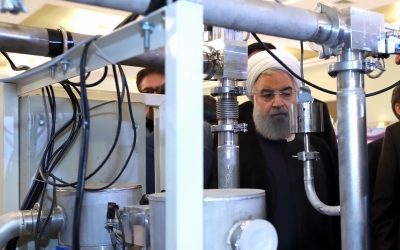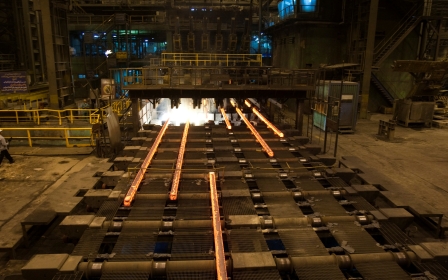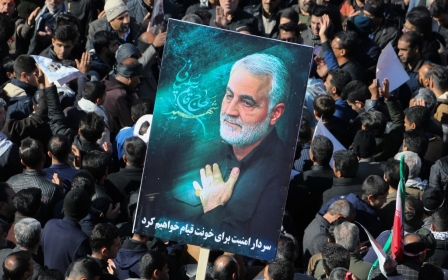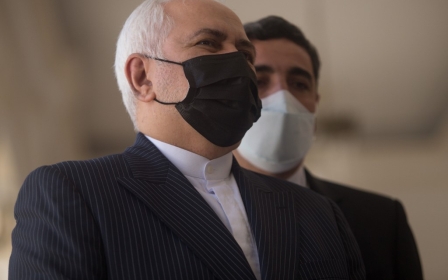Germany, France and UK 'deeply concerned' over Iran's uranium enrichment

Germany, France and the United Kingdom say they are "deeply concerned" over Iran's decision to resume its uranium enrichment programme to pre-nuclear deal levels, which represents Tehran's boldest breach of the multilateral pact yet.
In a joint statement on Wednesday, the foreign ministers of the three nuclear deal signatories - known as the E3 - said Iran's move to boost its uranium enrichment up to 20 percent "carries very significant proliferation-related risks" and further violates the Joint Comprehensive Plan of Action (JCPOA).
"We strongly urge Iran to stop enriching uranium to up to 20% without delay, reverse its enrichment programme to the limits agreed in the JCPoA and to refrain from any further escalatory steps which would further reduce the space for effective diplomacy," the joint statement reads.
Iran notified the UN's International Atomic Energy Agency (IAEA) on Monday that the increased enrichment would take place at its underground Fordow nuclear facility, but stressed that the renewal could be reversed if the other signatories made good on their side of the deal - relief from international sanctions related to Iran's nuclear programme.
Weapons-grade uranium requires 90 percent enrichment, but as part of the 2015 nuclear agreement with world powers, Tehran agreed to scale back enrichment to 3.67 percent.
New MEE newsletter: Jerusalem Dispatch
Sign up to get the latest insights and analysis on Israel-Palestine, alongside Turkey Unpacked and other MEE newsletters
We resumed 20% enrichment, as legislated by our Parliament.
— Javad Zarif (@JZarif) January 4, 2021
IAEA has been duly notified.
Our remedial action conforms fully with Para 36 of JCPOA, after years of non-compliance by several other JCPOA participants.
Our measures are fully reversible upon FULL compliance by ALL.
The E3 on Wednesday said the countries had been "in close contact" with the other remaining JCPOA participants - which technically no longer includes the US - to assess how to best address Iran’s non-compliance within the framework of the deal.
US President Donald Trump pulled Washington out of the agreement in 2018, and his administration has been piling sanctions on Iranian businesses and its oil, steel and petrochemical sectors, choking the country's economy.
Iran has been slowly loosening its commitments to the agreement, as its only means of pressure against the US reimposition of sanctions.
US President-elect Joe Biden is set to take office on 20 January and has said he plans to make nuclear deal negotiations with Iran a top foreign policy priority.
The incoming president has conditioned a US return to the agreement on Iran coming into full compliance with the 2015 pact.
In an interview with CNN on Sunday, Biden's national security adviser Jake Sullivan slammed Trump's approach to Iran, including the killing of Iran's top general, Qassem Soleimani.
Sullivan reiterated that the incoming administration is looking to return to the deal, but added that Washington will be seeking follow-on negotiations that would address Iran's ballistic missile programme and include regional players.
"In that broader negotiation, we can ultimately secure limits on Iran's ballistic missile technology, and that is what we intend to try to pursue through diplomacy," he said.
Middle East Eye delivers independent and unrivalled coverage and analysis of the Middle East, North Africa and beyond. To learn more about republishing this content and the associated fees, please fill out this form. More about MEE can be found here.





